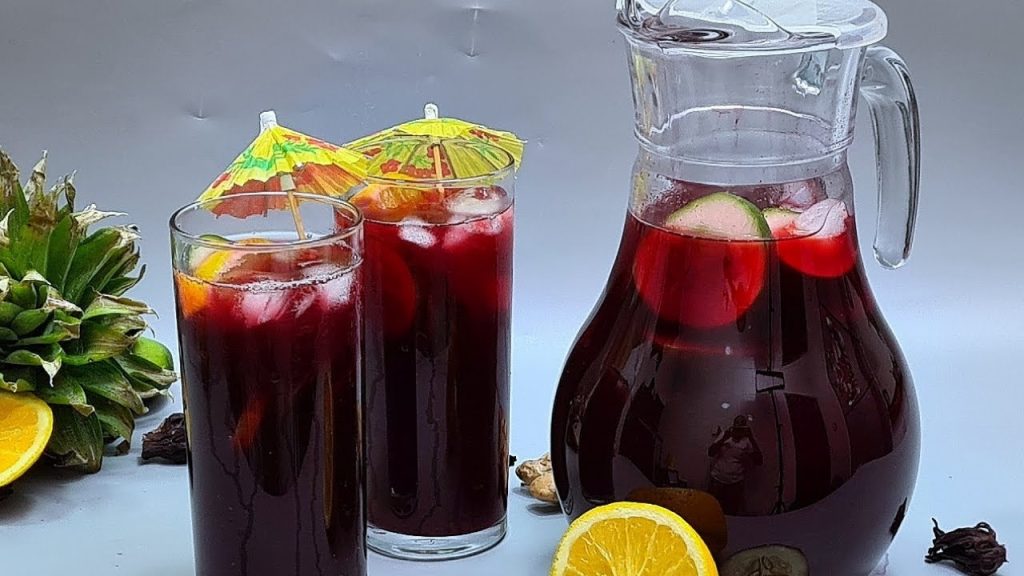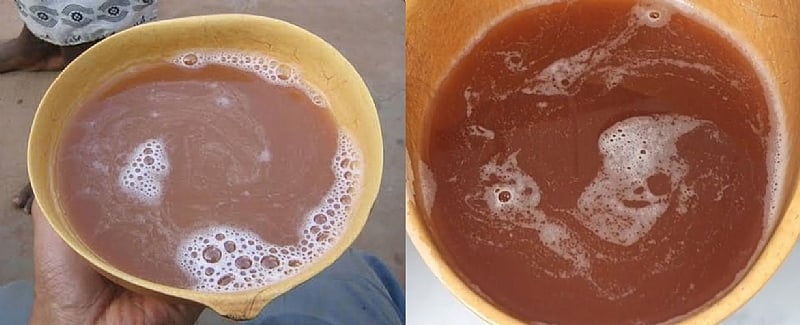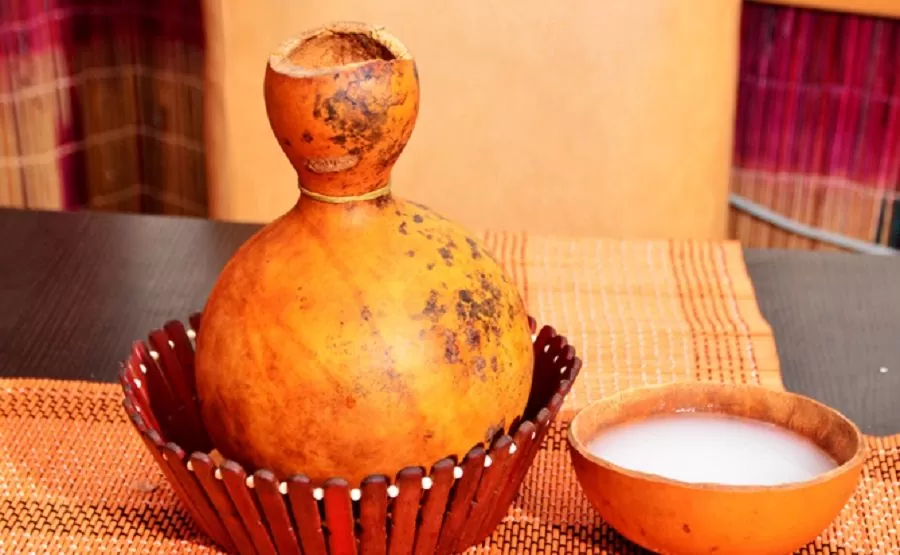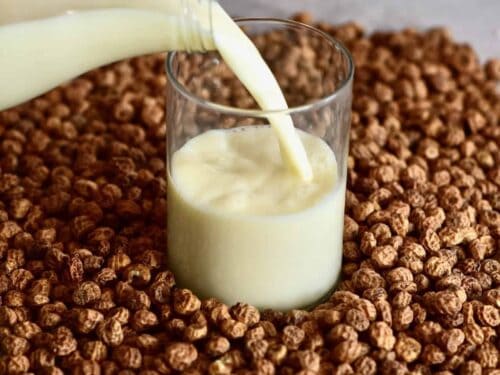Unveiling Nigeria’s Traditional Spirits: Ogogoro, Burukutu, and More – Top 5 Local Beverages
Ogogoro is a traditional distilled spirit that originates from Nigeria. It is a locally brewed alcoholic beverage made through a process of fermentation and distillation. Ogogoro is known for its high alcohol content and is often produced in small-scale, artisanal operations. The spirit has various regional names, and it is sometimes referred to as “Sapele Water” or “Kai-Kai.”
Here’s a general overview of the traditional process of making Ogogoro:
Ingredients:
- Fermentable materials (often palm sap, coconut sap, or a mixture of grains)
- Water
- Yeast
- Firewood or other fuel for distillation
Procedure:
- Collection of Sap:
- One common method involves tapping sap from palm trees. The sap, also known as “palm wine” or “toddy,” is collected from the flowering part of the palm tree.
- Fermentation:
- The collected sap is left to ferment, allowing natural yeasts to convert sugars into alcohol. This fermentation process contributes to the production of a low-alcohol beverage known as “palm wine.”
- Distillation:
- After fermentation, the palm wine is distilled to increase the alcohol content. Distillation involves heating the fermented liquid to create vapor and then condensing it back into liquid form. This process is typically done in homemade stills, often made from traditional materials.
- Collection:
- The distilled liquid, now with a higher alcohol content, is collected. The first fraction of the distillate, known as the “heads,” is often discarded due to its higher methanol content, which can be harmful.
- Maturation (Optional):
- Some producers allow the distilled spirit to mature or age for a period, which can contribute to the final flavor profile of Ogogoro. This step is often done in storage containers made from wood or other materials.
- Bottling:
- Once the desired maturation is achieved, Ogogoro is often bottled or sold in various containers for distribution and consumption.

Ogogoro has cultural significance in Nigeria, and it is consumed in social and traditional settings it is used as a means to bless new couples and also to use for prayers and good fortune it is also mixed with herbs to health benefits. However, similar to other traditional spirits, there are health and safety concerns associated with its consumption due to its high alcohol content. In some regions, there have been efforts to regulate and control the production and sale of Ogogoro to ensure safety standards are met.
As with any alcoholic beverage, individuals should consume Ogogoro responsibly and be aware of the potential risks associated with high alcohol content.
Top 5 Locally Made Beverages in Nigeria
1. Zobo
Zobo drink, also known as “Zoborodo,” is a popular and refreshing Nigerian beverage made from dried hibiscus petals (Hibiscus sabdariffa). It is known for its vibrant red color and distinctive tart flavor. Zobo drink is enjoyed throughout Nigeria and other parts of West Africa.

2. Burukutu
Burukutu is a traditional alcoholic beverage that has its roots in Nigeria and other West African countries. It is particularly popular among certain ethnic groups in Nigeria. Burukutu is a fermented beverage typically made from grains, such as sorghum or millet. The brewing process involves fermentation, which converts the starches in the grains into alcohol.

3. Ogogoro
Ogogoro is a traditional distilled spirit that originates from Nigeria. It is a locally brewed alcoholic beverage made through a process of fermentation and distillation. Ogogoro is known for its high alcohol content and is often produced in small-scale, artisanal operations. The spirit has various regional names, and it is sometimes referred to as “Sapele Water” or “Kai-Kai.”

4. Palm wine
Palm wine is a traditional alcoholic beverage that is widely consumed in various tropical regions, including parts of Africa, like Nigeria. Palm wine is derived from the sap of certain species of palm trees.

5. Kunu
Kunun Aya is a popular Nigerian drink made from tiger nuts. Tiger nuts, also known as aya in some regions, are small tubers that are rich in nutrients.

BURUKUTU – A Traditional Alcoholic Beverage from Nigerian
Burukutu is a traditional alcoholic beverage that has its roots in Nigeria and other West African countries. It is particularly popular among certain ethnic groups in Nigeria. Burukutu is a fermented beverage typically made from grains, such as sorghum or millet. The brewing process involves fermentation, which converts the starches in the grains into alcohol.
Here’s a basic overview of the traditional process of making Burukutu:
Ingredients:
- Sorghum or millet grains
- Water
- Sorghum malt or millet malt (sprouted grains)
- Plantain or banana (optional)
- Flavorings (optional)
Procedure:
- Malting:
- Sorghum or millet grains are soaked in water to initiate germination. The germinated grains are then dried, creating malt. This process develops enzymes that aid in the conversion of starches into sugars during fermentation.
- Milling:
- The malted grains are milled to extract sugars and other nutrients. The resulting malted flour is mixed with water to form a mash.
- Fermentation:
- The mash is allowed to ferment. This step involves the natural fermentation process where yeast and other microorganisms convert sugars into alcohol. The fermentation time can vary, typically ranging from a few days to a week or more.
- Straining:
- After fermentation, the liquid is strained to separate the alcoholic liquid from the solid residue. The liquid obtained is the Burukutu drink.
- Flavoring (Optional):
- Some variations of Burukutu may involve the addition of flavorings, such as plantains or bananas, to enhance the taste.
- Storage:
- The strained liquid is usually allowed to settle and mature for a period to develop its characteristic flavor. It may be stored in airtight containers or traditional clay pots.
It’s important to note that the preparation of Burukutu may vary among different communities, and additional ingredients or steps may be involved in the brewing process. The taste and potency of Burukutu can also depend on the duration of fermentation and the specific grains used.
While Burukutu has cultural significance and is enjoyed by some communities, it’s important to consume it responsibly due to its alcoholic content. Additionally, variations in the preparation methods may exist, and the information provided here is a general overview.
Related Reading Discover Nigerian Culinary Delights: Egusi Soup Varieties & Seafood Tomato Pepper Recipe

